Register for free and continue reading
Join our growing army of changemakers and get unlimited access to our premium content
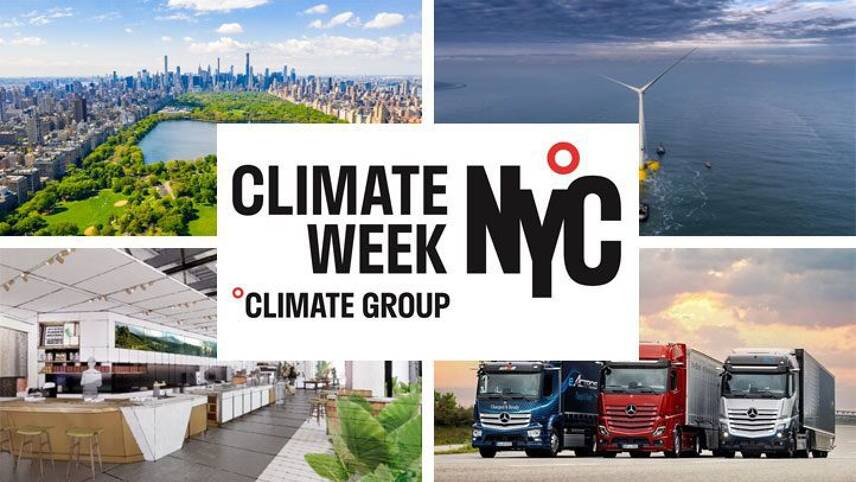
On Monday (21 September), hundreds of representatives from policy, business, science, academia, thought leadership and the third sector came together – some in-person, some virtually – for Climate Week NYC.
The event, orchestrated by The Climate Group, has been hosted annually since 2009 and coincides with the UN General Assembly. After an all-virtual event last year, this event once more saw experts descending on NYC for lively discussions.
Here, edie rounds up all the key happenings which took place either at the event, or to coincide with it, splitting them in accordance with our Mission Possible campaign pillars.
Readers interested in finding out more about Climate Week NYC are encouraged to stream the latest episode of edie’s Sustainable Business Covered podcast, which features an exclusive interview with The Climate Group’s chief executive Helen Clarkson.
ENERGY
- Ørsted has revealed plans to spend £12bn with Scottish firms on offshore wind. The proposals are contained in bids submitted to The Crown Estate Scotland through the ScotWind offshore wind leasing round, with the Danish firm entering bids for five projects with a combined capacity of 8.5GW.
- A new renewable energy business, Renewco Power, has launched with £24m committed from SSE. The Edinburgh-based company is hoping to develop projects with a combined capacity of at least 4GW within five years.
- Work has begun on the 50MW Kincardine floating wind farm, off the east coast of Aberdeenshire. The facility is being developed as part of a Power Purchase Agreement (PPA) deal between Statcraft and Cobra Group.
- UK Export Finance has committed to aligning its financing with a net-zero by 2050 pathway. The Government pledged that the credit agency would end overseas financing for fossil fuels late last year.
Image: Statkraft and Cobra Group
RESOURCES
- E-commerce firm Etsy has launched a new offering, whereby US-based sellers can access recyclable packaging made from 100% recycled or sustainably sourced materials. Options will include boxes, padded mailing bags and rigid envelopes.
- The Budweiser Brewing Group has forged a new partnership with aluminium producer EN+ Group, in a drive to produce its lowest-carbon beer cans.
- Oxford University Press, the world’s largest university press, has pledged to achieve zero-waste-to-landfill from operations by 2025. It has also pledged to reach 100% sustainably sourced paper within the same time frame.
- Packaging producer DS Smith is planning to embed its Circular Design Metrics, which were designed in collaboration with the Ellen MacArthur Foundation, across all of its sites.
- Children’s clothing brand Frugi has partnered with TheLittleLoop to launch a ‘shared wardrobe’ services, whereby clothing that has been outgrown can be returned or swapped.
- Govia Thameslink Railway has announced plans to increase recycling rates at Brighton station from 30% to 95%. It is working with startup the Green Block to trail a new machine that will segregate, wash, compact, bale, weigh and electronically tag all waste from Brighton station, as well as all Southern and Thameslink trains running to and from the city.
- Liverpool FC has confirmed plans to send plastic used at Anfield for recycling by SC Johnson. The FMCG giant will use it to manufacture packaging.
- Morrisons is set to remove plastic packaging from all bananas, replacing them with paper bands. The change will mitigate the use of 45 million single-use plastic bags every year.
MOBILITY
- A group of mobility platforms, including Uber, Lime and Arrival, have all committed to fully decarbonising their networks by 2035 at the latest, as part of a new collaborative manifesto.
- Mercedes-Benz Truck has presented a new range of low-carbon truck models, including fully electric models the Actros F, Actros L and eEconic. It has also pledged to release its first second-generation hydrogen fuel cell truck in 2027.
- Work on the first phase of what is believed to be the UK’s largest electric bus depot has been completed. First Bus’s Caledonia Depot now boasts 11 1150kW dual cable charging units, which can charge a bus in four hours. 22 new electric buses are due to be delivered to the site within the next six weeks.
- London’s largest private transport provider, Addison Lee, has announced plans to fully transition to electric vehicles (EVs) by 2023.
- The UK’s largest mobile coffee franchise, Cafe2U, has launched what it claims is the world’s first zero-emission coffee van. It is planning to upgrade its feel of around 100 vehicles to pure electric within five years.
- Car subscription service Onto has added 300 Citroen e-C4s to its fleet. They will be made available to customers in October. Each hatchback has a 217-mile range.
Image: Mercedes-Benz Truck
THE BUILT ENVIRONMENT
- A new energy rating scheme for UK offices has officially launched in a bid to help businesses reach net-zero targets by bridging the gap between the design and in-use energy performance of their buildings. The scheme is called NABERS UK and is managed by the Building Research Establishment (BRE).
- Wates and the UK Department for Education have confirmed that work has begun to build what will be some of the nation’s first net-zero new-build schools. Schools set to meet this standard include Lytham St Anne’s Hugh School, Littleborough Community Primary School and Nursery and Whitworth Community High School. Wates is acting as the developer and is using an offsite manufacture approach to slash embedded carbon.
- Starbucks has opened its first ‘Greener Store’ outside of North America, in Shanghai. The Greener Stores plan centres around reducing waste and emissions in construction, design and operations. In operation, such stores use 25-30% less water and energy than average Starbucks locations.
- edie has published a new Business Guide to Net-Zero Buildings in association with IES, providing a much-needed breakdown of how organisations can achieve net-zero carbon buildings in the long-term and the steps they can take today to accelerate progress. Click here to download your copy for free.
Image: Starbucks
BUSINESS LEADERSHIP
- A coalition of 86 businesses signed the Climate Pledge, orchestrated by Amazon and Global Optimism, meaning they will need to reach net-zero by 2040 at the latest. New sign-ups include Procter & Gamble (P&G), Selfridges, Asos and Nespresso.
- The “Business Avengers” of the UN’s Sustainable Development Goals (SDGs) have launched a new awareness campaign, targeted at both businesses and the general public. Included in this cohort, which is managed by Project Everyone, are Arm, Avanti, Commvault, Diageo, DPD, Google, Mars, Nike, NTT, Reckitt, Salesforce, SAP, Unilever and Wood.
- Walmart has completed the closing of its inaugural green bond issuance, raising $2bn.
- Tesco has set a 2050 net-zero target for supply chain emissions, building on a commitment to reach net-zero operational emissions by 2035. Similarly, Unilever has revealed its plans for halving supplier emissions by 2030.
- An additional 12 asset owners have signed on to the Net-Zero Asset Owner Commitment, orchestrated by the Paris-Aligned Investment Initiative (PAII). This brings PAII’s total support to 118 investors collectively representing around $34trn of assets.
- The British Standards Institution (BEI) has committed to embed climate considerations into every new standard it writes going forward, stating that industry needs “clear, practical guidance to achieve net-zero”.
- The UN-backed ‘Pathways to Dairy Net-Zero’ initiative was officially launched, with the support of 40 organisations that collectively represent some 30% of global milk production. Similarly, cheese producer Wyke Farm released the results of a study of the emissions in its milk supply passe, finding that emissions intensity was 55% lower than the global average.
- Mastercard has launched a new Sustainability Innovation Lab in Sweden. At this facility, staff will focus specifically on solutions that enable sustainable spending for businesses and individuals.
- Formula E has had its emissions targets approved by the Science-Based Targets initiative, in line with 1.5C. It claims it is the first sport in the work to join the initiative. Also securing approval for its targets is food and beverage major Suntory Holdings.
- Velux Group has partnered with Schneider Electric to develop a carbon action plan pilot scheme, designed to reduce fossil fuel use at factories. Velux has already committed to the RE100 goal, meaning that, by 2030 its electricity will be 100% renewables-based, but other sources of manufacturing emissions will prove harder to abate.
- Global design and consultancy firm Arcadis announced a 2035 net-zero target for operational emissions. The business has applied for verification from the Science-Based Targets initiative for plans to cut operational emissions by 45% by 2025, against a 2019 baseline. There are also plans to cut emissions relating to business travel by 35% within the same timeframe
- Colt Group is targeting net-zero operational emissions by 2030. It is planning to cut operational emissions by 46% before offsetting the residual emissions. Emissions reductions will be driven by renewable electricity and low-carbon gas procurement and electrifying the company vehicle fleet.
- Boston Consulting Group (BCG) has built on a 2030 net-zero target with a commitment to halve its emissions intensity by 2025.
- Salesforce claims it has achieved net-zero across its full value chain. edie has reached out to the firm for more information on how.
Image: Amazon
Sarah George
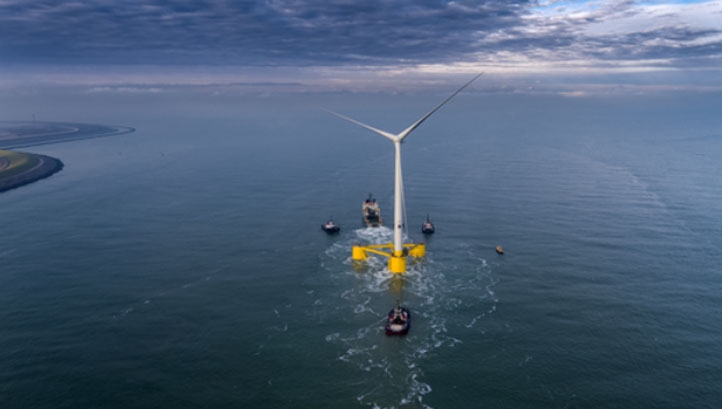
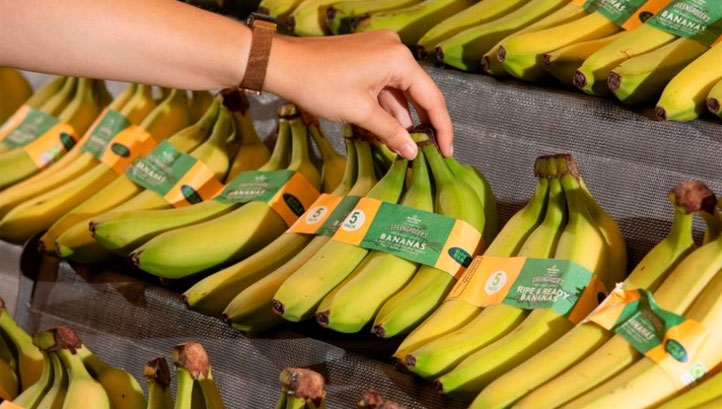
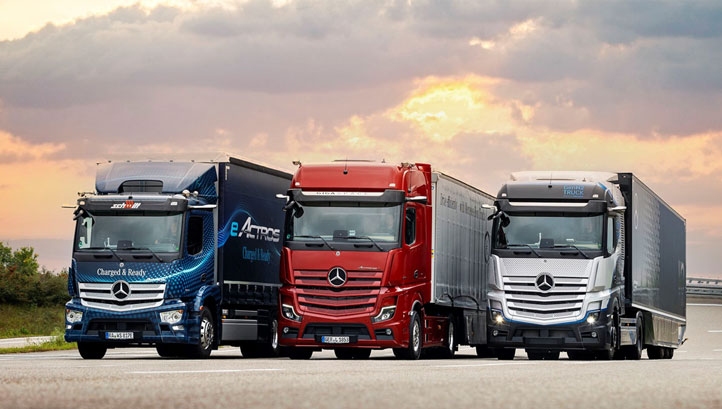
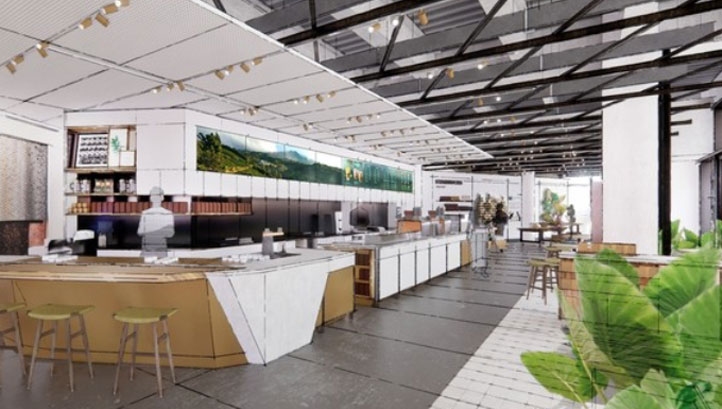



Please login or Register to leave a comment.